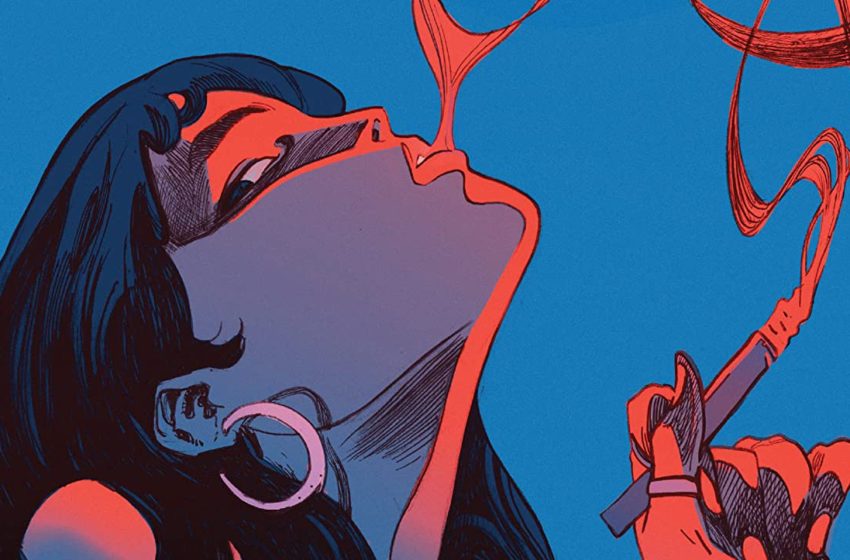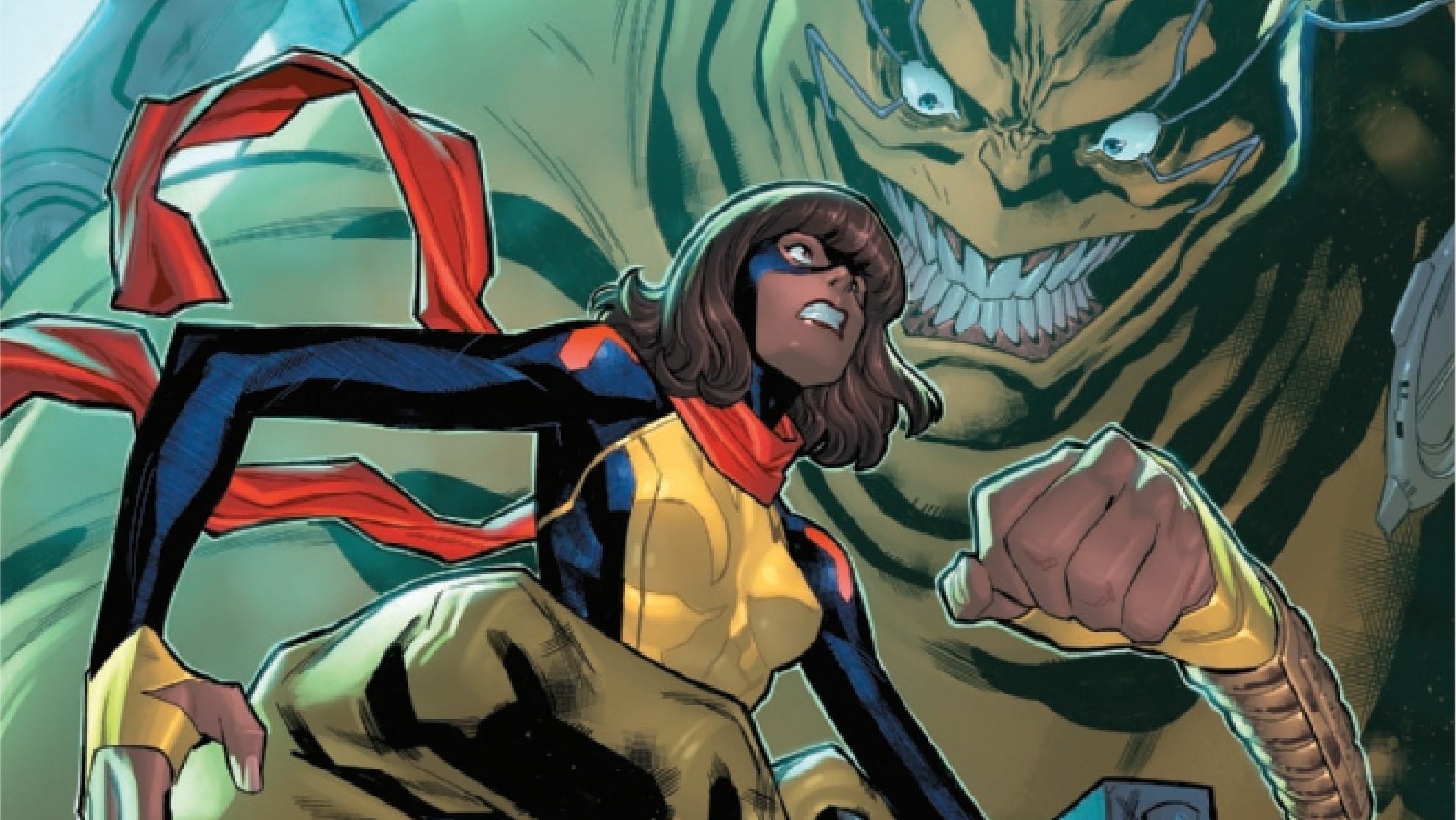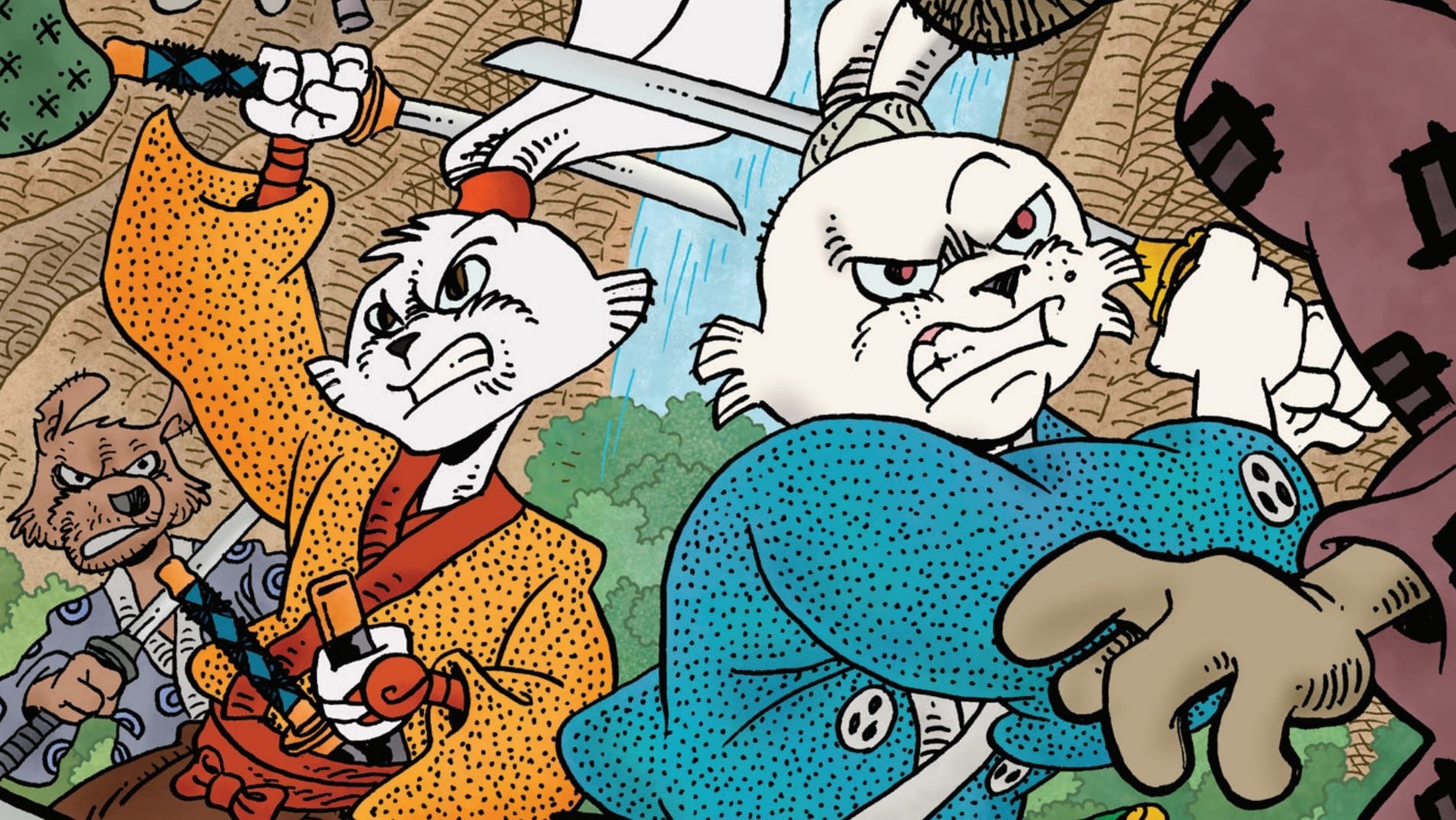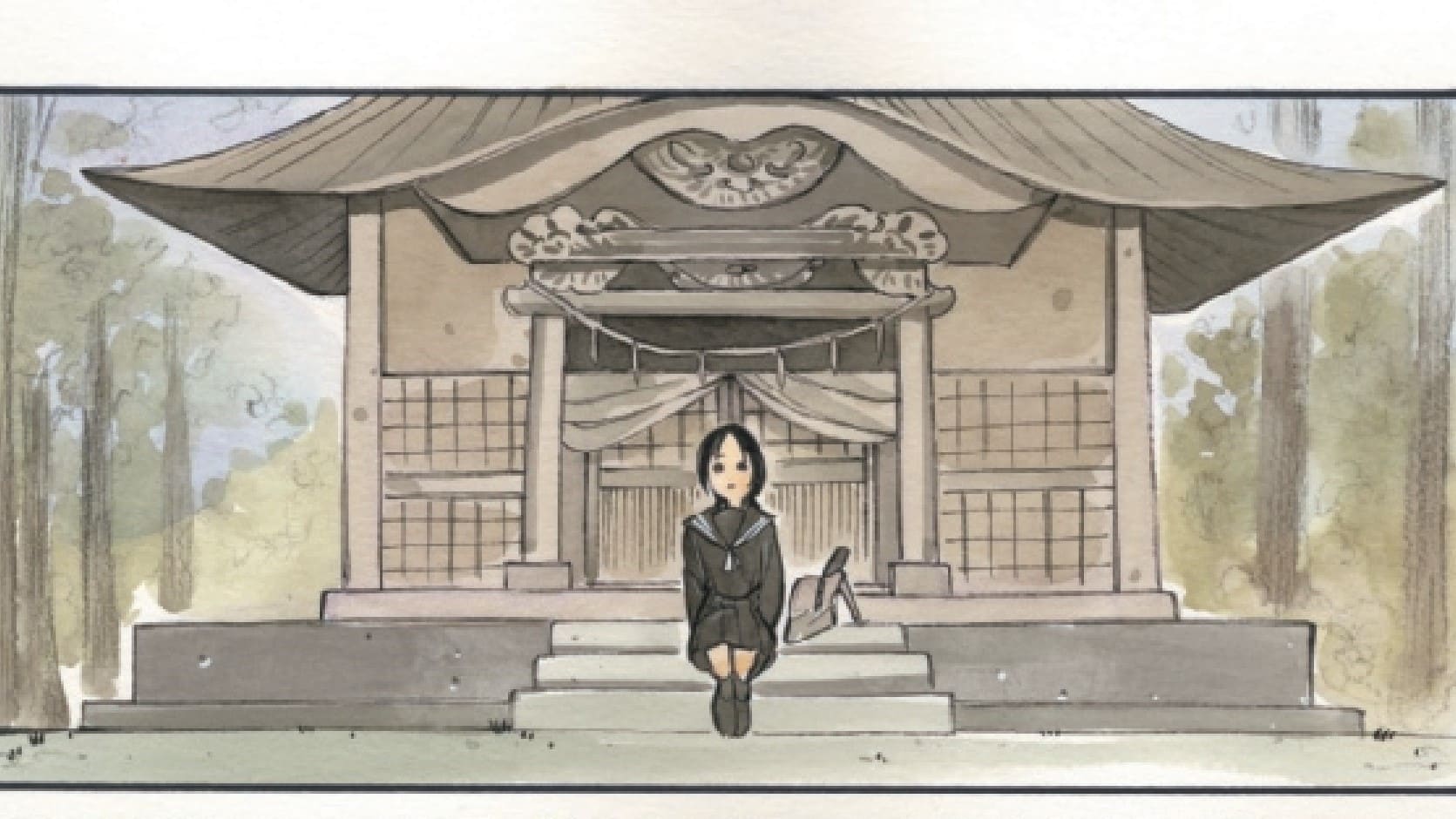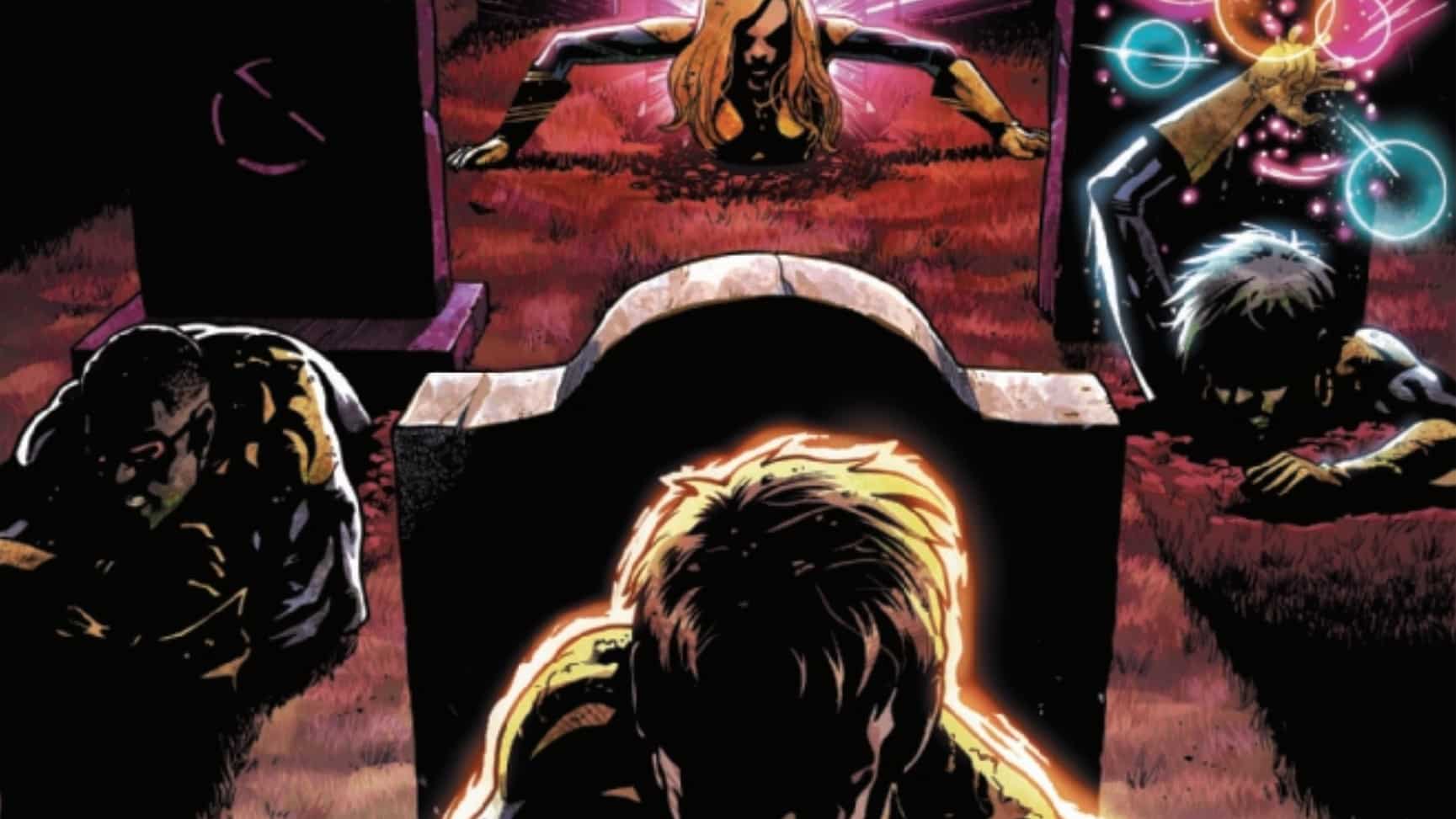They grow up so fast — faster still if you spend the intervening years dead. Laila Starr has taken 12 years to come back to life and another to party, during which time Darius has grown to be a young man of 21. What sort of experiences has the child lived through — and what will happen when he experiences his second brush with Death? The Many Deaths of Laila Starr #3 is written by Ram V, illustrated by Filipe Andrade, with colors by Inês Amaro. Letters by AndWorld Design.
Armaan Babu: Twenty-one, a time often consumed by the fires of youth. Fires of forging, fires of lust, passions, mistakes and stubborn rage. But fire is a thing of life — what belongs to Death are the ashes. As a non-smoker, I wasn’t expecting to spend this much time in the mind of a cigarette, but it was definitely — and I hope you’ll excuse the pun — enlightening. How did you enjoy it?
Andrea Ayres: I will allow the pun because I never say no to a good pun. I think this has been my favorite issue of the series thus far. It set me aflame. Fire is destructive and cleansing. It leaves behind scorched Earth where something new will have the chance to prosper in its place. I can’t wait to discuss The Many Deaths of Laila Starr #3 with you.
Up In Smoke

Armaan: So we have a unique framing device for this issue, as mentioned — a cigarette, given life, sentience and even omnipotence, apparently, after receiving the kiss of an unwitting goddess. Laila — or Death, for those in the know — seems to have given up her search for Darius Shah and has instead spent the last year making a deep dive into all sorts of mortal pleasures.
While I’ve enjoyed Kah and Mun Mun, this cigarette might just be the most endearing little entity I’ve seen so far. What about you, Andrea?
Andrea: The cigarette is possibly one of the most loathsome inventions to me. I have a deep dislike of them, watching them destroy my mom, grandmother and grandfather. Still, they capture the ephemeral nature of joy, pleasure and life itself.
The issue opens with Laila in a cloud of smoke at a party. Bodies move and undulate in the background. There is activity all around her, but she is in repose. The nature of a cigarette repeats throughout Laila Starr #3. The smoke replicates in moving bodies and dialogue. Nothing feels permanent. There is also a sort of headiness evocative of a nicotine high thanks to the stellar work of Andrade, Amaro and AndWorld Design.
There’s a bit of Ram’s writing I can’t get out of my skull. It’s on Page 4: “Newly aflame and abandoned to ponder life upon my own gaudy memento mori.”
It’s a great encapsulation of early adulthood, even if the prose does veer slightly into the purple for me. What did you think of the opening sequence here and when Laila encounters Darius?
Armaan: What gets me are the colors. Everything is bright, and everything is loud — the best description I can think of for the colors is acidic. You describe the evocation of a nicotine high fantastically, and I’m amazed at how well this comic captures the feel of a nightclub’s sensory overload. Chaos and poetry; everyone feels deep when it’s just late enough and you’re just drunk enough, just high enough.
YOLO, memento mori, life is too short — the highest thrills of a party are often with those who are keeping the fleetingness of life in mind. There’s a little bit of death tinting the best parties — and Death here is front and center, right at home with it all. She’s certainly taken to mortal life well.
Darius, however, is definitely the kind of party-goer I relate to a lot more. Out of place, quiet and, very quickly, broken-hearted.
Danika — whose name means Morning Star, for those keeping track, the polar opposite of Laila’s Night Star — does her best to put a positive spin on her dumping Darius. But there’s no way to break a heart without hurting it, and Darius is left despondent.
What interests me is how the break-up goes down. It’s not a quiet moment, and there’s nothing cold about it. Danika kisses Darius passionately — she lights him on fire before leaving him with that taste of ash in his mouth. Flames — and the ashes they leave behind — are something this issue keeps coming back to, over and over again.
Andrea: No matter how many people are at a party, I feel alone. The physical impact of bodies moving in space. The energy of disparate personalities is suffocating. Not unlike cigarette smoke. Danika’s words snarl and curl around Darius. It’s unpleasant and beautifully brought to life by exquisite lettering.
I love that Danika’s name means Morning Star. The morning star is equated with the planet Venus and often symbolizes hope. At first, the idea Danika could provide Darius with any hope appears counterintuitive, but it sets him on a path.
And that path leads us to a pillow factory.
We Make Dreams

Armaan: So I love the party. I love the cigarette (who, in my head, has a squeaky and self-important little narrative voice). I love the conversation that comes later in the comic, but for me, my favorite parts of this issue are the (implied) adventures of Darius, Danika and their friend Zaffar.
Maybe part of it is because of how badly I wanted a friendship like this at that age. Teenage outsiders, hanging out in and making their mark on abandoned buildings, soaked through memories of the past. We move from the acidic colors of the nightclub to bright evening daylight at a gorgeously overgrown factory. We have a glimpse of Darius’ adolescence. Darius has some treasured moments with the two closest people in his life in that factory, his best friend and his first love.
The setting is a place of abandoned dreams. The factory seems important in a way I can’t quite put my finger on. Does it feel any more clear to you?
Andrea: It perhaps never registered to me as a place of abandoned dreams so much as a place where dreams never truly were in the first place.
The placard at the factory reads, “We don’t just make pillows, we make dreams.”
It’s the kind of empty statement used by corporations across the planet to make people feel better about grinding their bodies and mind to dust. Dreams aren’t made in a factory. It’s a lie we buy into to make it through a day so we can (possibly) put food on the table. Just like no one believes a cigarette will get us fame, good looks, or wealth. We buy into whatever fantasy we need to get by.
Watching Zaffar, Danika and Darius interact as youth reminds me of how barbed relationships feel at that age. Zaffar comes off as aggressive and antagonistic. He wants to poke Darius at his raw bits. Bonds and friendships in adolescence are often dominated by resource control. There is only so much attention, would-be partners, awards, or accolades to go around. The tension between Darius and Zaffar exposes a fraught world of male adolescent friendship. Would they, could they have had a long-lasting relationship? Sadly, we don’t know because Zaffar dies. What did you think about the mob scene at the pillow factory?
Armaan: I think you nailed the symbolism behind the factory perfectly. Now my heart is sad and a little achy. Zaffar’s death doesn’t help.
Zaffar’s death pains me for several reasons. The first is just how much life Andrade draws into him. Despite how warped and cartoonish Andrade draws his characters, almost all of them bear this weight — this quiet dignity filtered through their personalities. Danika is a bright, twinkling, self-assured cool. Darius has his shy earnestness and sensitivity. Zaffar? Zaffar’s a prince. He’s charismatic, chaotic, passionate and silly. Everyone knows a Zaffar at some point in their lives. You either love or hate him, either way, he’s the fuel that sets your emotions ablaze either way.
His name means victory. At first, I thought this was the first of Ram V’s names with no deeper meaning, but then I thought of his last memory with Darius. The fight they had and their final heated argument lead to Darius walking away. Zaffar is alone in his castle with nothing. And then, as Darius says, the world fell apart.
There have been too many riots in Mumbai. Ram V is deliberately vague when it comes to which riot he is referring to. It could be the riots of 1992. It could have been the one related to the Gujarat riots of 2002. The riot could be fictional. The cause is not important. The focus is on the stoking of the flames of mob fervor and those who suffer as a result. The innocent die when the flames of anger and outrage are fanned.
Some riots bring about revolution, others do nothing but burn things down. All we have left of Zaffar and the factory are ashes in place of the potential of what might have been.
The colors on these two pages are simple: we have the red, hypnotically vivid in the way only this art team can achieve — flaming reds contrast with smokey grays. The flames of life and the ashy death they leave behind. It’s interesting how little focus the riots themselves get — the focus we get is on that hollow loss — the burned-out husk of what remains.
‘The Last Bit That I Have to Offer”

Andrea: Death is a sleight of hand. Our entire life, we think, oh God, I’m so afraid of dying. I’m fearful of the end. It’s not death we fear. The body knows how to die. It can do that just fine. We convince ourselves in all our toil and angst against death that it is the last exhalation of breath we attempt to avoid. We want to avoid suffering — sadness. The ripples of death reverberate through families and generations. We hate the suffering.
Like our focus on death, we tend to focus on the actions of mob violence — horror, terror, destruction, and waste. Sometimes the consequences of a riot are so absorbing we don’t spend enough time considering how we got there or atoning for the systemic inequalities built into our institutions. The focus is on the inciting event rather than the path of how we got there. That’s why Darius writing in the ash, “We don’t just make pillows” is such an emotionally evocative moment.
There’s something about youth that I have lost as I approach middle age. We make dreams. Kids, teens, 20-year-olds still believe in dreams. You do until you, well, don’t. There’s such melancholy losing the ability to dream. What’d you think about the final section here?
Armaan: It’s time for Laila and Darius to have another heart to heart.
You talk about youth, but Death’s never had one. A mythical being like her probably never had a childhood. She was born ancient, right when eternity began. She’s been enjoying her time in the body of a young mortal, but I wonder how much she understands the pain of mistakes and lost dreams. Her only dream is to do her job well. A dream destined to be ruined the boy she shares a cigarette with.
You know, for some, parties are all about wildness, the high and drunken revelry. For others, it’s all about sharing a moment, a cigarette, or a heartfelt conversation on a balcony with a stranger. These moments provide calm amidst the chaos, a genuine connection born out of the magic of pure chance. It’s a magical thing. Like a cigarette, it’s brief and heady, but these are the moments that stick with you.
I like Death’s matter-of-fact approach to comfort. The words she has for him are my biggest takeaway. The idea you don’t know how much a person is holding you up until they’re gone. Darius and Death discuss the idea he’s half a person in the wake of Zaffar’s death. And with Danika having left him, he’s even less, by that logic.
Darius asks her, in amusing ignorance, how she got to be an expert on life. This strikes her, but it is funny the only way to think about life is in terms of death. It’s a sentiment Pranah makes more explicit later — the God of Life is nothing without Death. This issue is all about the motivation to live life to the fullest and how motivation comes from the awareness death brings. Our narrator, the cigarette, could have lived much longer had it not received Death’s kiss. But it burned all the more brightly for having received it.
Unfortunately, a little too brightly as its spark lights a fire that burns down the place — leading to the fourth death of Laila Starr and another time skip, this time another 16 years into the future.
This issue’s taken us through a lot. What’s your biggest takeaway from it?
Andrea: Naturally, I have such a different takeaway from Laila Starr #3. It’s not a big shocker, given this is a comic that deals with life and death. What we glean from the tale of Laila Starr is mainly dependent on our lived experiences. I think that’s a significant bit to touch on here.
The comic allows for this breathing room for people to have different interpretations. Ram V’s writing provides flexibility, the lettering, and the architecture of the colors and art, giving us a scaffolding, but there’s space. Some writers fear losing narrative control but the creative team demonstrates the usefulness of providing room.
I think the moments that impact us the most are the ones we barely think to consider. If you were to play a movie back of my life, you’d see big moments, yes. You also see the gentle curve of my life’s trajectory shaped by the inconsequential or ephemeral. I guess it’s not about the big or the small. It’s the idea that one minute, one moment, irrevocably shapes the next, and there’s nothing we can do about it but be in it.
Musings From Mumbai
- Current tally for the deaths of Laila Starr: 4
- Andrea thinks that Pranah saying he is nothing without Laila hurt my soul. I fear for him, for them.
- Laila’s always had long hair, but it’s gotten wildly out of control after her latest death — and it looks fantastic.
- We both want a spinoff comic about the adventures of Danika, Darius and Zaffar, please.

